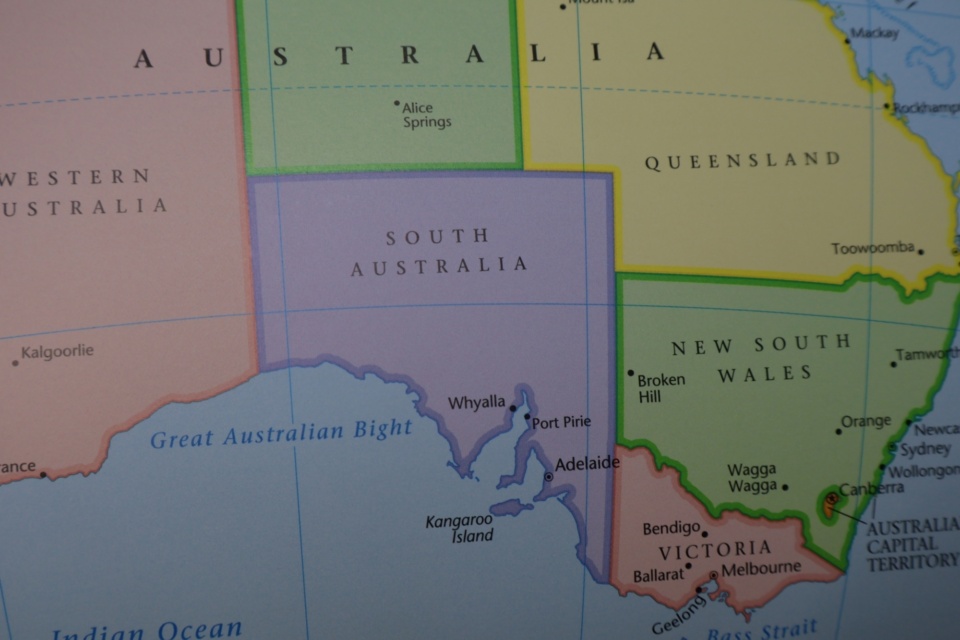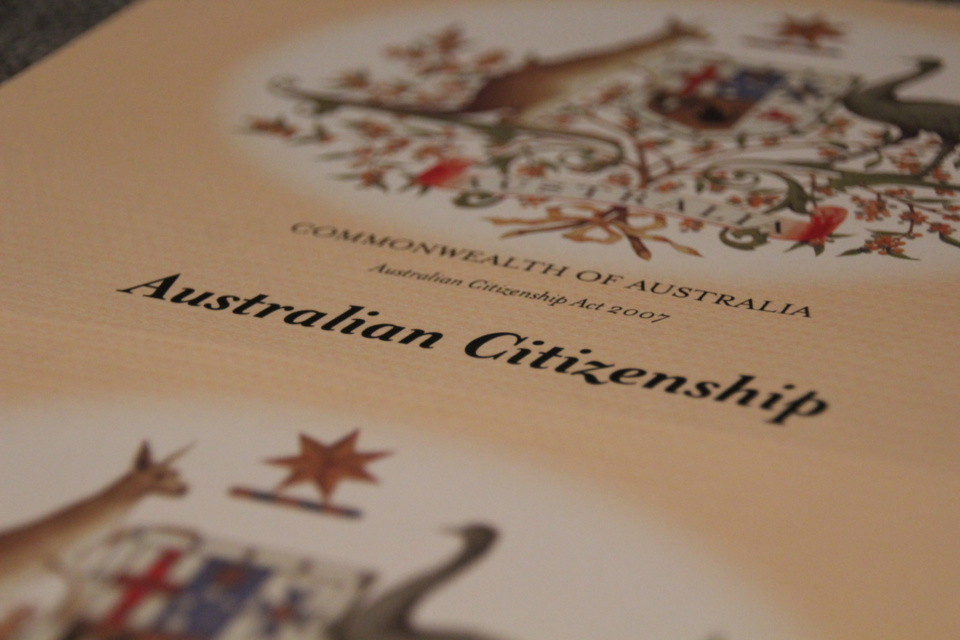
One Nation’s chances as a dominant conservative party are piñata-like
Posted on 11 Feb 2026
Opinions polls insist Pauline Hanson's fortunes are on the rise, but it is likely that enthusiasm…
Posted on 10 Oct 2023
By Denis Moriarty, group managing director, Our Community

Voting Yes in the Voice referendum is our chance to show we have evolved as a nation in the 122 years since Federation, says Denis Moriarty, group managing director of Our Community.
Once again, the American system of government is grinding to a standstill.
The Speaker of the House has been rolled, and until a new one is elected nobody can pass anything. In Australia that would take about half an hour; in America it’s likely to take weeks, if not months.
This governance collapse is in the first instance due to the Republican Party’s descent into culture-war conspiracy theory Trumpism, and I can only hope it provides a warning to Peter Dutton not to keep nicking Trump’s applause lines.
The structural problem that’s allowed it to happen, however, is rooted in the American Constitution.
I probably don’t need to explain the American system. Most Australians have a much better grasp of the American Constitution than they do of their own, and we often get the two confused.
We tend to think that we have constitutional rights to free speech, for example. And we tend to think that Australia has an American-style constitutional separation of powers – a clear division, that is, between our parliament, our executive, and our judiciary.
The parliament passes laws, the executive administers the machinery of government to implement these laws, and the judiciary resolves arguments about what those laws mean in particular cases.
Any Australian who believes that the Australian system involves such a separation has every excuse. It is what the plain text of our Constitution says, after all. The judicial power is vested in the courts; the legislative power is vested in the federal parliament; and the executive power is vested in the King.
As an analysis of how things work, this has the obvious disadvantage that it’s utterly deranged. The King doesn’t vet Australia’s public servants.
The King doesn’t draw up the budget. He doesn’t, in any sense whatsoever, run the government. Charles may bestir himself once a generation or so to roll a Labor prime minister, but that’s about it.
The system works, for certain definitions of ‘works’, because the bits of the Constitution that deal with political parties, the cabinet and the prime minister are in there; they’re just written in invisible ink, as ‘conventions’.
Similarly, the bits that deal with the King have an invisible ink modification that adds the word ‘not’.
"If I had a reservation about entrenching the Indigenous Voice to parliament – and I really don’t – it would be that it’s going to be a bit hard on the Voice being the only part of the shambles that makes any sense."
It hasn’t always been true that parliament ran the whole show, and it wasn’t true when America split off from Britain.
It’s understandable, then, that the Yanks just took over the British system of 1790 – king, courts, parliament – with the one exception being that they had an elected president other than a hereditary twit.
Correspondingly, America actually does have a separation of powers, and there’s no necessary overlap between the legislative and the executive powers.
That’s the problem. The present Republican crap show demonstrates just why British-style parliamentary systems have unanimously agreed to ignore the more important parts of their constitutions altogether.
If you have a Westminster system, then the Ministers of State are chosen from the ranks of MPs by the ruling political party (or coalition).
This means that political parties have more power than individual MPs or Senators: the party can offer them ministries of they play nice and bounce them from the party if they disagree. It means ministers have public visibility and public responsibility. And it means MPs have a chance to see first-hand what administrating something actually involves.

In America, none of these things are true. American party organisations have almost no say in the selection of local members.
Almost nobody knows the name of anyone in the American cabinet. You can’t be a Congressperson or Senator and head up a government department.
In Australia it’s impossible for a government to be unable to get its budget through the House of Reps, because ‘being able to get a budget through the House’ is the definition of ’government’.
If the budget doesn’t pass, there’s a new election and a new government.
Yes, the Australian system of vigorous misrepresentation plainly works better than the American, but that’s a humiliatingly low bar.
Our reliance on every Australian politician having their fingers crossed when taking the oath of office has left us with many inbuilt vulnerabilities.
For one thing, Australians have been led to believe that our Constitution is in some sense a consistent and effective blueprint for governance, which makes us more reluctant to alter it.
If we publicly admitted that it was a jerry-built heap of misleading verbiage, we would surely look more favourably on referendums to change it.
If I had a reservation about entrenching the Indigenous Voice to parliament – and I really don’t – it would be that it’s going to be a bit hard on the Voice being the only part of the shambles that makes any sense.
If we don’t get the Voice through, of course, that’ll be it for any constitutional change for my lifetime, and we’ll be stuck with having the king written in as our ruler without even having the ability to cut his head off in case of misbehaviour.
We’re being offered just about our last chance to show that we’re not exactly the same country that we were in 1900.
How can we possibly turn it down?
Denis Moriarty is group managing director of OurCommunity.com.au, a social enterprise that helps the country’s 600,000 not-for-profits.

Posted on 11 Feb 2026
Opinions polls insist Pauline Hanson's fortunes are on the rise, but it is likely that enthusiasm…

Posted on 28 Jan 2026
This year’s Adelaide Writers’ Week began with the cancellation of a talk by Palestinian-Australian…

Posted on 17 Dec 2025
Posturing by the US president about Europe's immigration policies, even warnings of future…

Posted on 03 Dec 2025
If you wanted an example of the problems inherent in federal systems, you couldn’t do better than…

Posted on 19 Nov 2025
When it comes to loyalty to car brands, it can be confusing who we should support, and, even more…

Posted on 05 Nov 2025
Before the Prime Minister gets too excited about his recent meeting with the American President, he…

Posted on 14 Oct 2025
The idea of "long term" is not something that sits well in the social media era, yet governments…

Posted on 30 Sep 2025
I am proud of what Our Community, and its exceptional team, have achieved in the past 25 years. As…

Posted on 16 Sep 2025
Happy Australian Citizenship Day! To mark the occasion, Our Community leader Denis Moriarty takes…

Posted on 02 Sep 2025
Words live, evolve, and sometimes die. Some words are invented from scratch, some are old words…

Posted on 26 Aug 2025
The cost of the National Disability Insurance Scheme (NDIS) is climbing relentlessly – $44 billion…

Posted on 04 Aug 2025
The new leader of the Liberal Party, Sussan Ley, wants to increase the proportion of women…